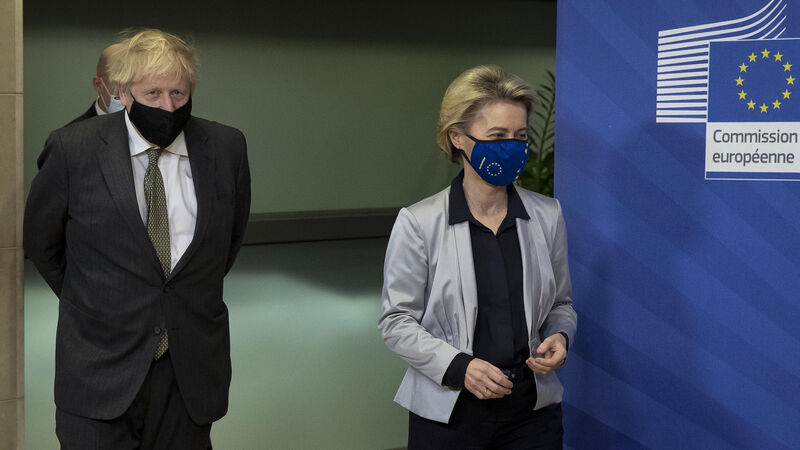Jim Power: One wonders why the UK ever joined the EC in the first place

Prime Minister Boris Johnson with European Commission president Ursula von der Leyen. Both sides have agreed to continue talks.
I recently got slagged off by a faceless individual on social media over describing the democratic vote of the UK electorate on 23rd June 2016 as ‘bizarre in the extreme’.
Despite the response, I stand by that assertion. I cannot understand the logic of walking away from completely free access to a single European market of 448 million people, and then try to negotiate trade deals with countries thousands of miles away.











